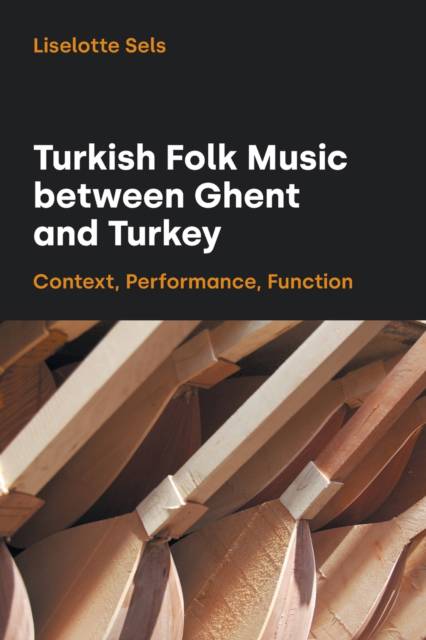
- Retrait gratuit dans votre magasin Club
- 7.000.000 titres dans notre catalogue
- Payer en toute sécurité
- Toujours un magasin près de chez vous
- Retrait gratuit dans votre magasin Club
- 7.000.0000 titres dans notre catalogue
- Payer en toute sécurité
- Toujours un magasin près de chez vous
Turkish Folk Music Between Ghent and Turkey
Context, Performance, Function
Liselotte Sels
Livre broché | Anglais
56,45 €
+ 112 points
Format
Description
In our twenty-first-century world, shaped by the transformative processes of migration, diasporization, and cosmopolitanization, musical performance conditions and contexts constantly change, while musical forms newly emerge and evolve. The development of Turkish folk music is well-documented, providing rich material for study in the motherland as well as in the diaspora. This book aims at exploring, describing, interpreting, and linking musical, contextual, and functional aspects of the manifestation of Turkish folk music in contemporary Turkey and the Turkish diaspora in the city of Ghent (Belgium). The Turkish presence in Ghent is particular in its size (approximately ten percent of the population) and constitution (mostly originating in the West Anatolian town of Emirdag). Anchored in detailed ethnographic reality, this book expands our views on what Turkish folk music signifies in the early twenty-first century, and adds to the apprehension and appreciation of this multifaceted, topical musical phenomenon. Its employed multi-sited, transnational comparative outlook is unique, with an added dimension generated by the inclusion of rural and small-town contexts complementing the urban perspective. Other contributions to the field include the transcription and analysis of performance styles, the evaluation of TRT discourses and practices, and the coverage of understudied research contexts (Ghent/Belgium and Emirdag).
Spécifications
Parties prenantes
- Auteur(s) :
- Editeur:
Contenu
- Nombre de pages :
- 224
- Langue:
- Anglais
Caractéristiques
- EAN:
- 9781781799499
- Date de parution :
- 01-07-21
- Format:
- Livre broché
- Format numérique:
- Trade paperback (VS)
- Dimensions :
- 156 mm x 234 mm
- Poids :
- 426 g

Les avis
Nous publions uniquement les avis qui respectent les conditions requises. Consultez nos conditions pour les avis.






